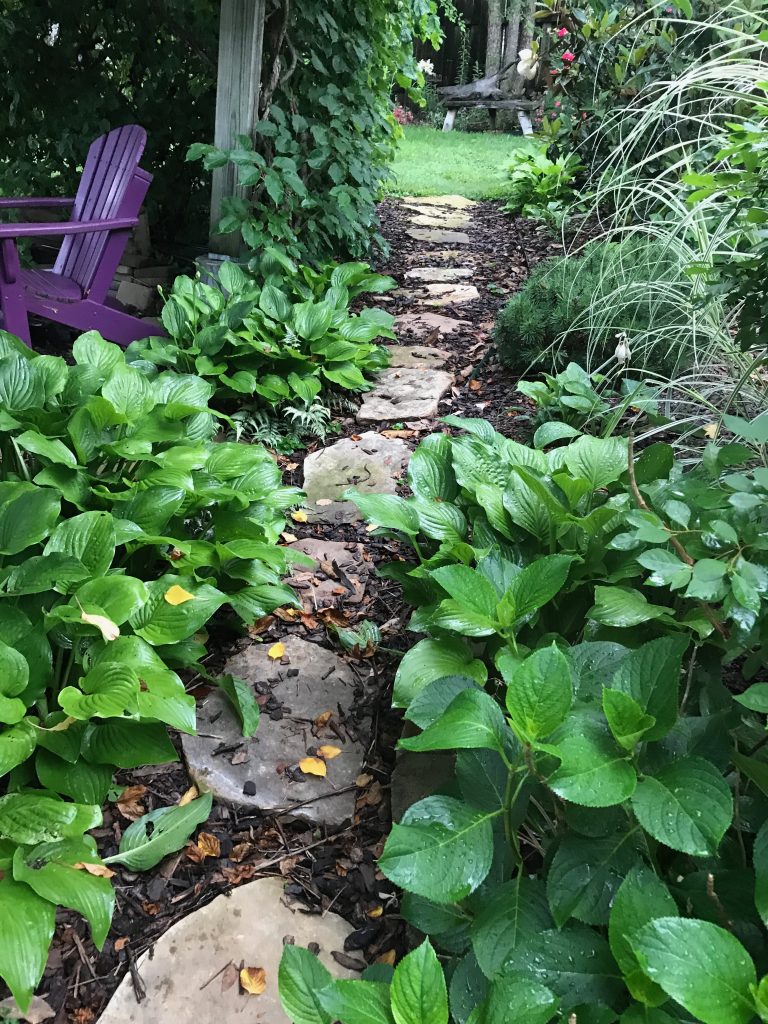Retired architect loves cultural connections he finds in plants
Harold Duckett’s love of gardening is rooted in history and culture.
That’s why he grows Acanthus spinosa, the plant that inspired the design of ancient Greek capital columns.
A kiwi vine, which provides shade over his garden arbor, came from New Zealand. A poet’s laurel shrub first came to America from Japan with Knoxville nursery owner David Howell in the 1700s.

His 14 koi, who eat out of his hand, also come from Japan. That’s where Duckett and his wife Beverly attended the All Japan Koi Show and fell in love with the species. “They’re like floating jewelry,” he said. “I got fascinated by them and came home and dug a pond.”
“Gardens are microcosms of almost everything we want to think about,” he said. “That just fascinates me. Our clothing comes from plants. Our food, the non-meat products, are plants. I’m not so much interested in a beautiful garden, all sorts of blooming plants. It’s more the awareness of social and political and world event histories that connect to the garden that fascinates me.”
Duckett, a retired architect and master gardener, and his wife, the self-described chief weeder, purchased their home in the Whittle Springs area 45 years ago. Their nearly one-acre lot has changed and grown and changed again as they’ve added and moved garden spaces and built an outdoor dining area and garden shed, complete with roofed front porch.
“A garden is a process,” he said, echoing what all devoted gardeners know. “It’s not a product.

“My family’s always been gardeners. When I was a kid I went to the garden every evening with my dad and hoed the okra and corn and beans and squash, and we’d sit in the middle of the garden and slice that stuff up and eat it. It just gets in your blood. I have Cherokee heritage also, and the earth has always been sacred to native Americans, and I think some of that captured my interest. And the other part about gardening is it’s a change from dealing with people all day. To be able to come home and wipe away all the frustrations and cantankerousness can make a big difference.”
Duckett encourages people planning a garden to put it where they want to be. “I drive by places and they’ll have a fountain in the front by the driveway, but they get out of their car and go in the kitchen door, so it’s strictly for the neighbors to look at, and they get none of the pleasure of the sound of water. So I think it’s important to put the garden where you are. Make it occupiable. Make it something you can enjoy.”
